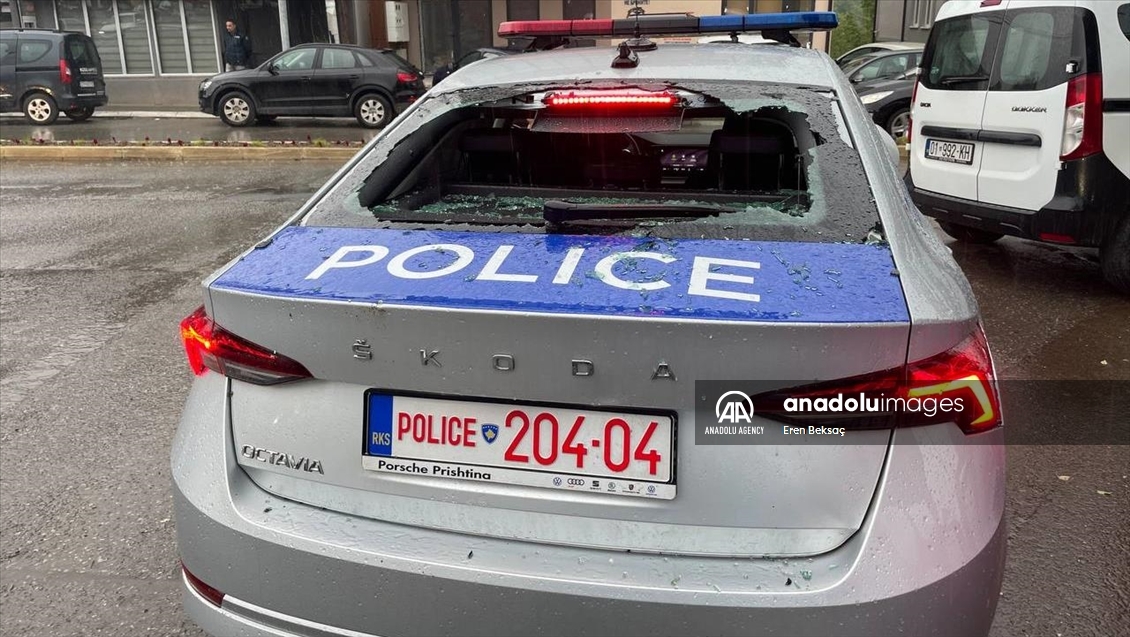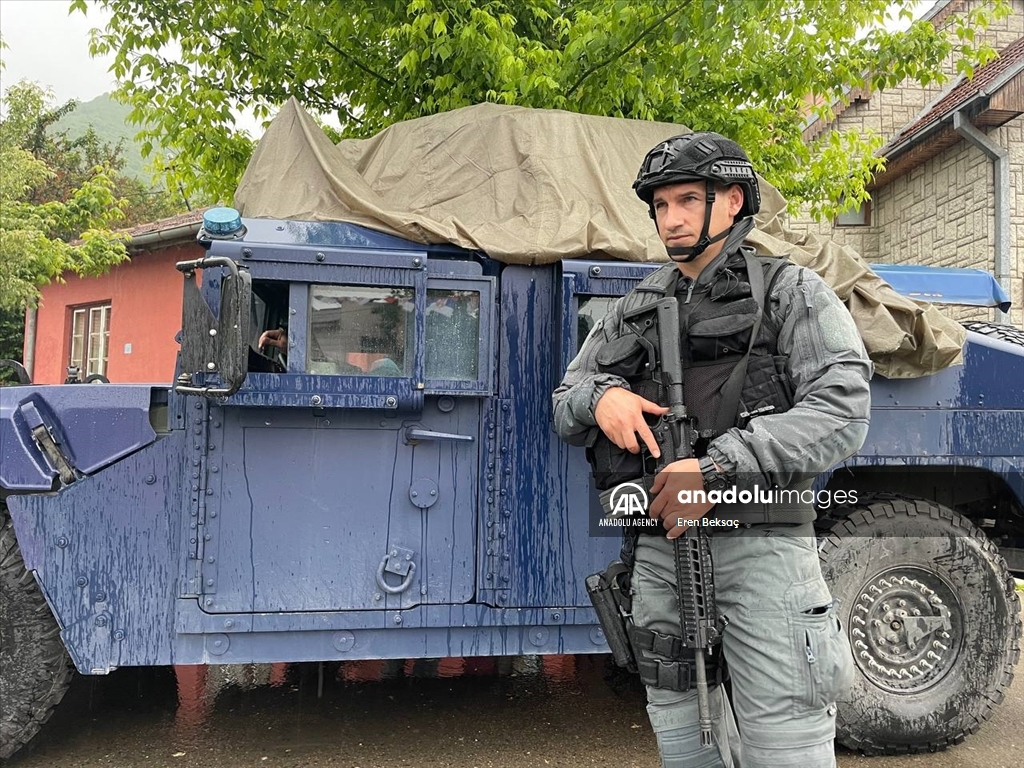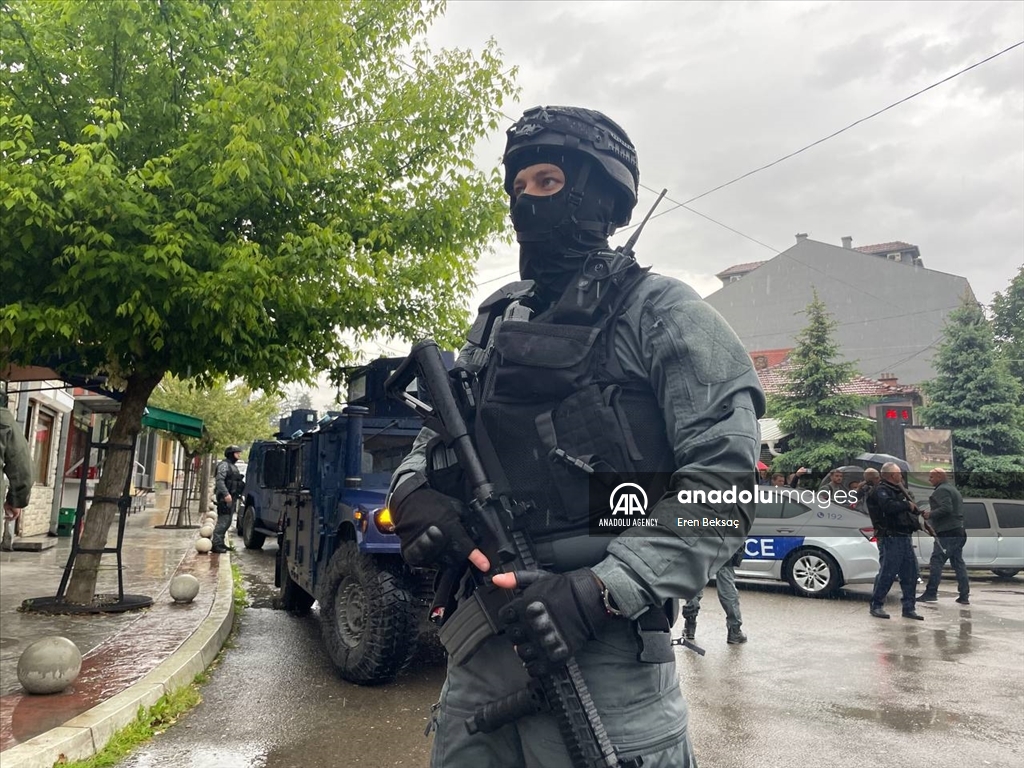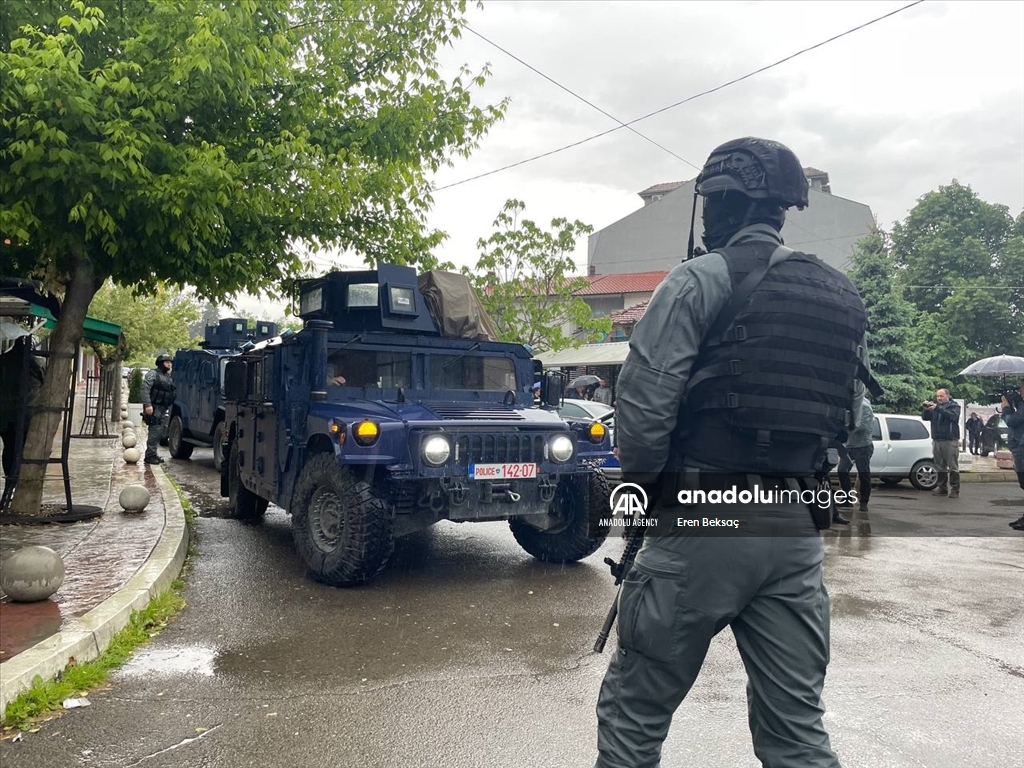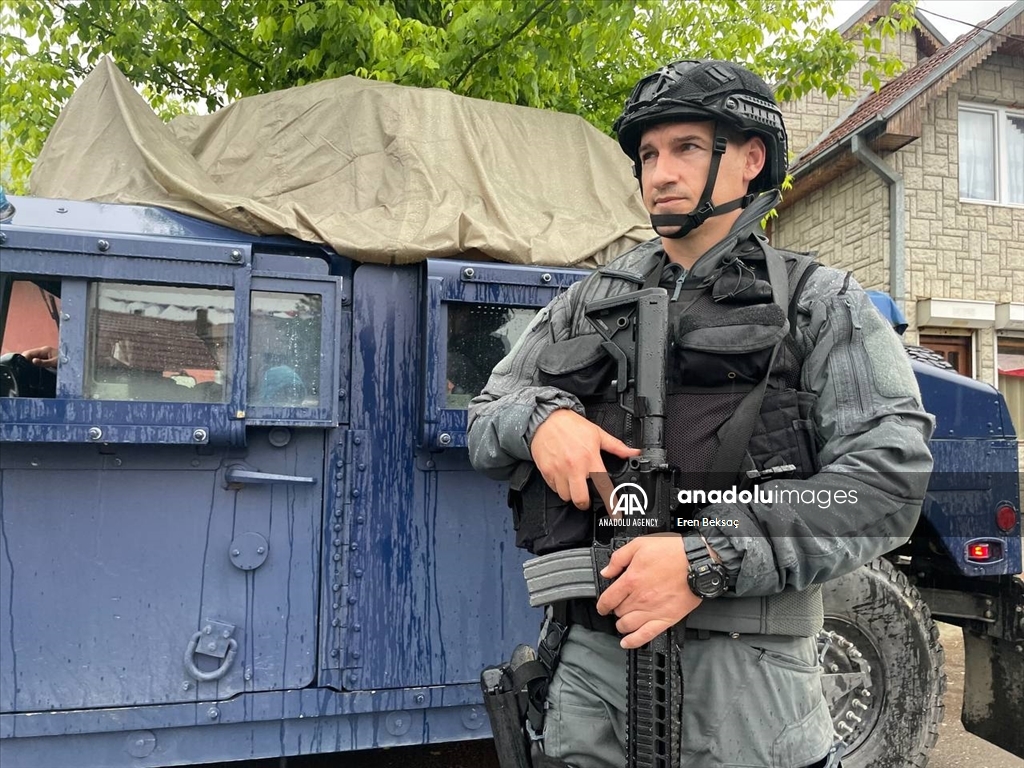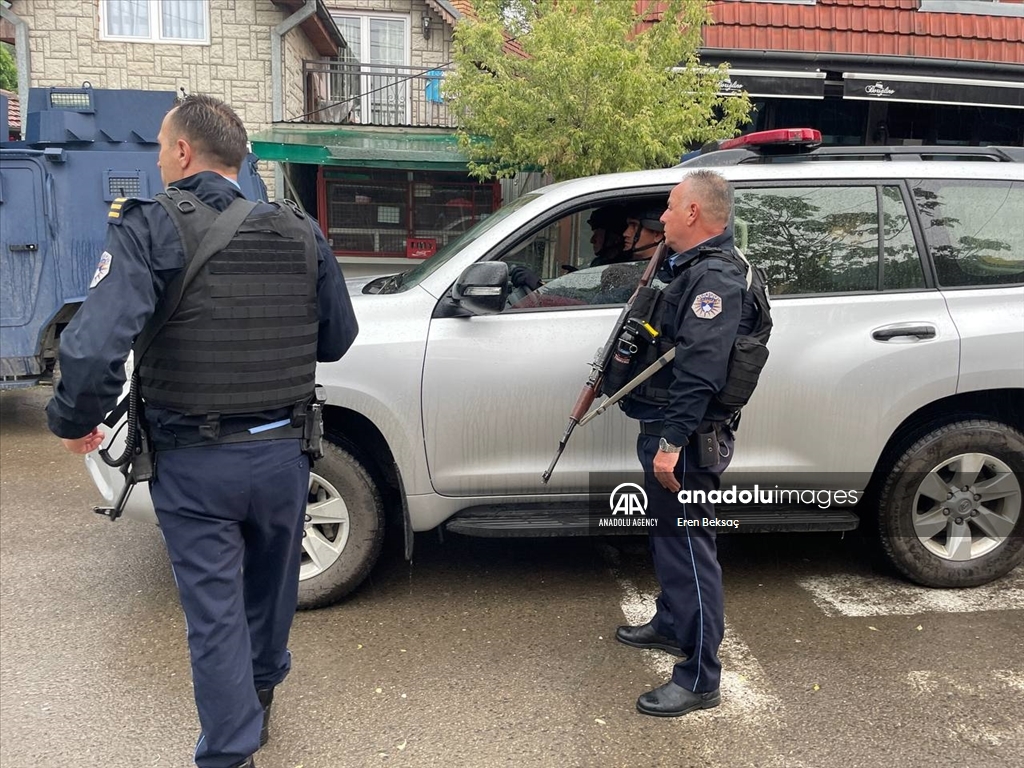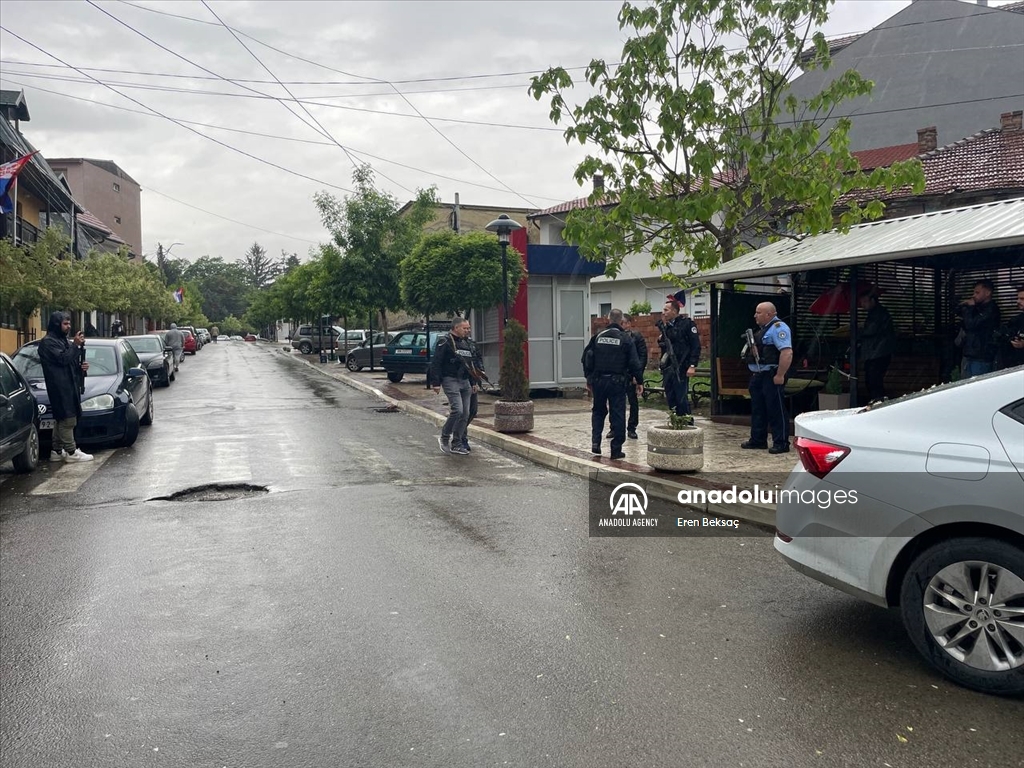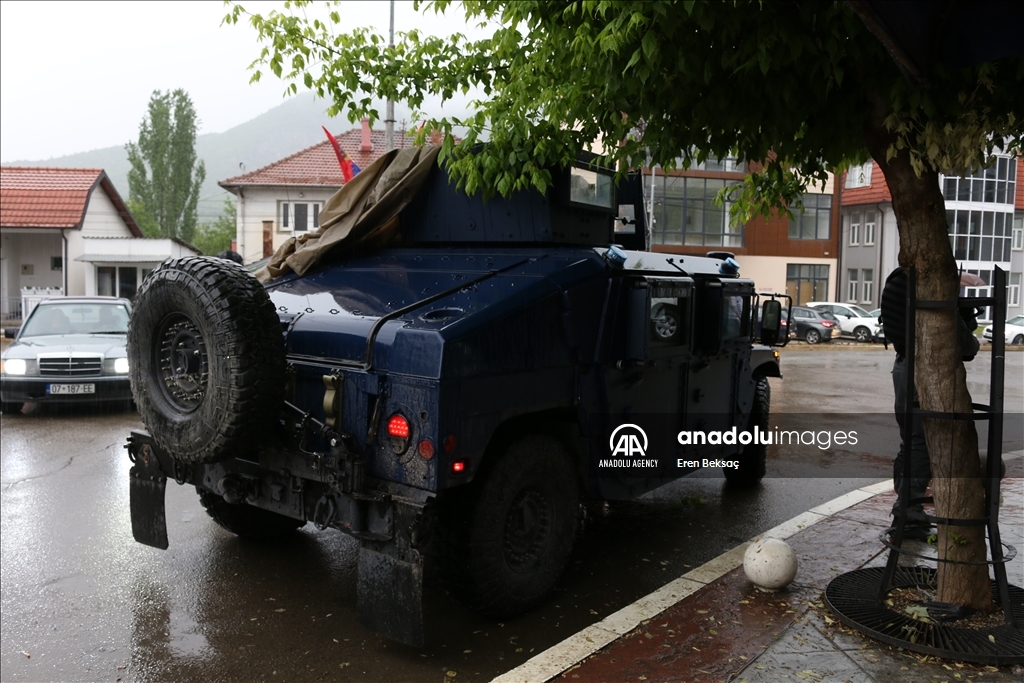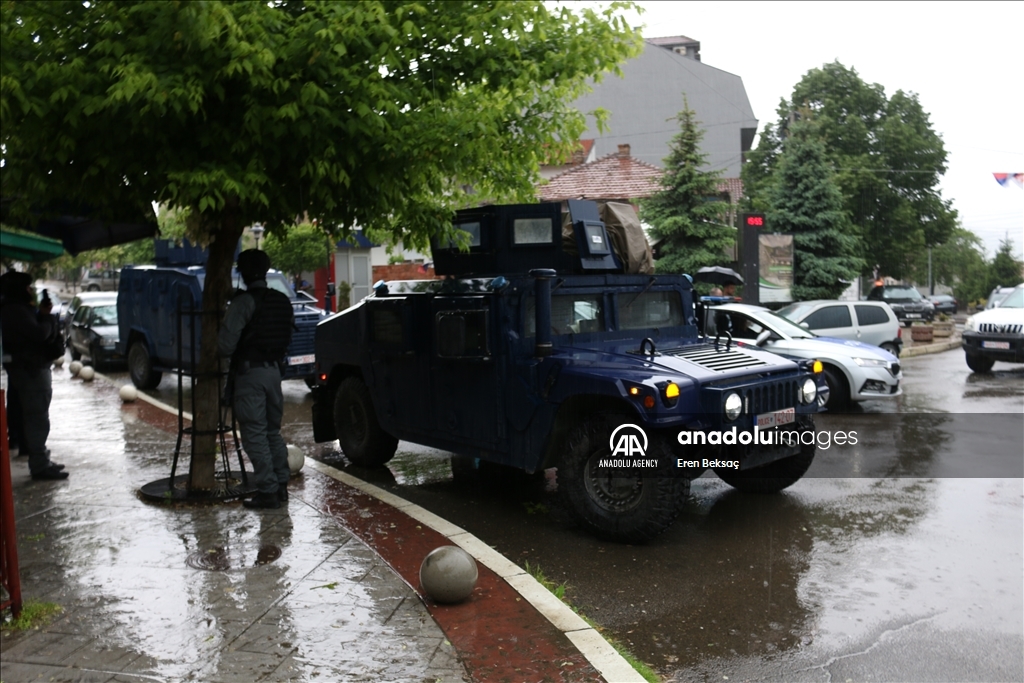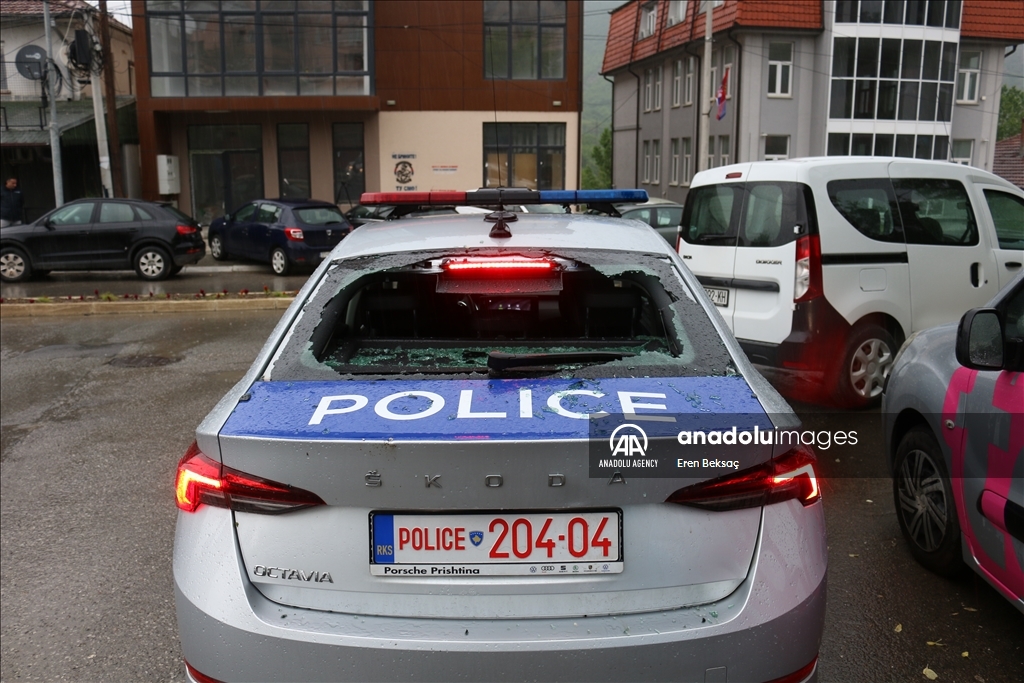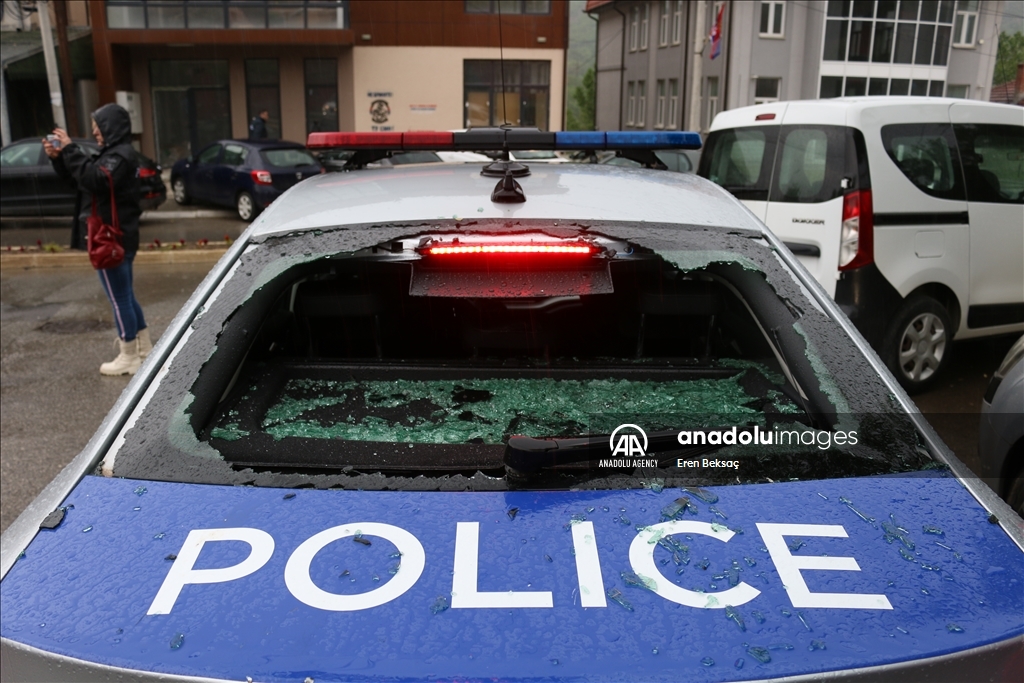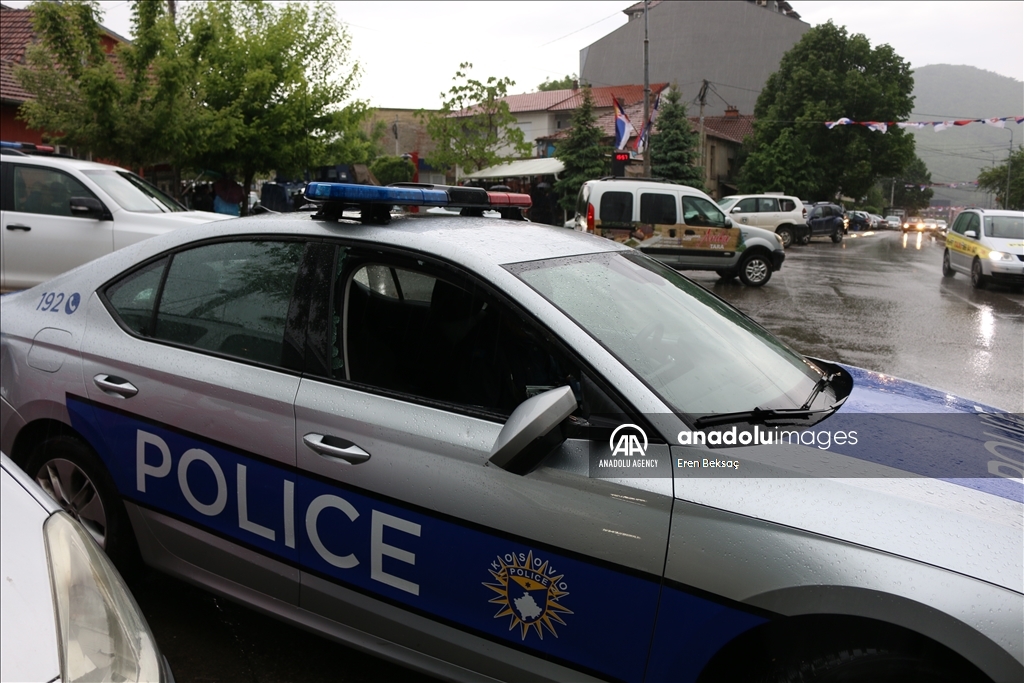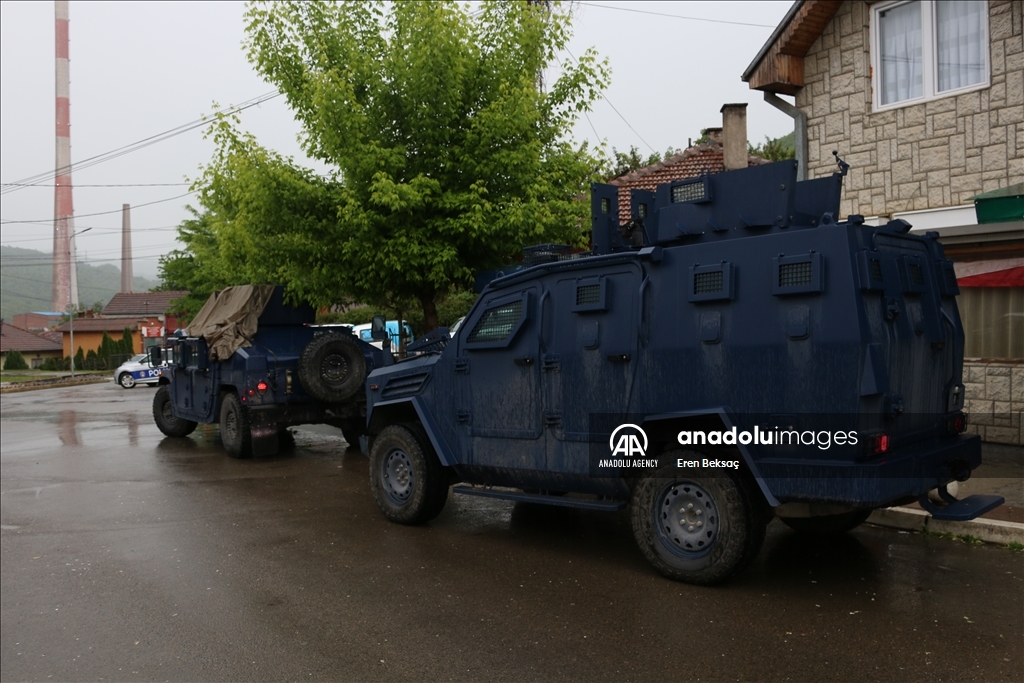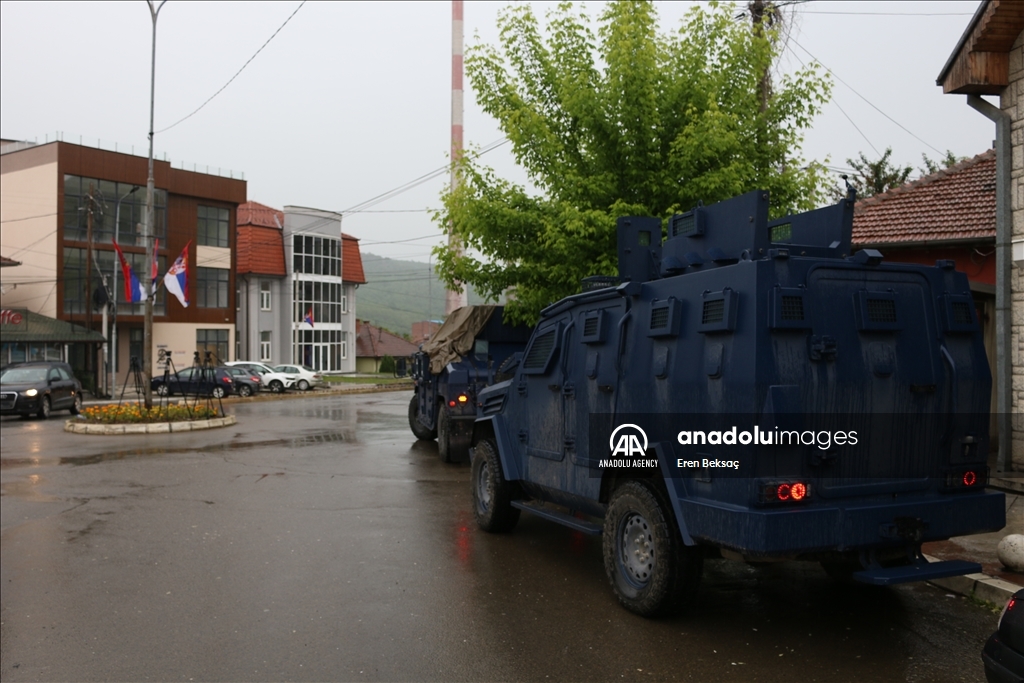Serbia places army on full combat alert, calls on NATO to end violence against local Serbs in Kosovo
Serbian president orders army, security forces for combat readiness following clashes in Zvecan over ethnic Serbs' rejection of the newly-elected mayor

BELGRADE, Serbia
Serbia on Friday ordered its army to advance to the administrative border with Kosovo and called on NATO to urgently stop violence against local Serbs in Kosovo.
President Aleksandar Vucic urged army and security forces to be in combat readiness after tensions mounted in Kosovo as local Serbs in Zvecan clashed with police outside of the administration building.
The move came after police in Kosovo clashed with local Serbs who gathered in front of the municipal building to block the newly-elected ethnic Albanian mayor from entering his office.
Numerous police in riot gear were deployed around the premises, along with the EU Rule of Law Mission in Kosovo and NATO Kosovo Forces personnel.
According to local media, stun grenades and tear gas injured at least 10 people after a police vehicle was set on fire and automatic gunfire was heard.
Defense Minister Milos Vucevic said Vucic ordered the military to step up its readiness level just before a rally by the ruling party in central Belgrade.
The rally was expected to be the biggest in the country's history.
Vucevic said the military would follow Vucic's orders and defend the country and lives of its people.
"It's clear that terror is being waged against the Serb community in Kosovo," said Vucevic.
Nemanja Starovic, state secretary for the ministry, accused Kosovar Prime Minister Albin Kurti of imposing his will on Serbs.
"Mobile phone signals are cut off in parts of the region, alarm sirens sounding as concerned citizens are gathering to peacefully defend their basic human and political rights," Starovic said on social media.
Tensions rose in the region amid the "Serbia of Hope" rally in Belgrade upon Vucic's call to show the country's unity in difficult times.
Thousands of ethnic Serbs are converging on the city from neighboring North Macedonia, Kosovo, and Bosnia and Herzegovina.
On the clashes in Zvecan, US Ambassador to Pristina Jeff Hovenier voiced his country's condemnation and called Kosovar authorities to halt the measures.
"The United States condemns the ongoing action by Kosovan authorities to access municipal buildings in the north of Kosovo. Today's violent measures should be immediately halted," Hovenier said on Twitter.
Earlier on Friday, German lawmakers extended mandate for the country's military missions in Kosovo for another year.
They approved a bill allowing German troops to take part in the NATO-led peacekeeping mission in Kosovo (KFOR) until mid-2024.
Local elections
Kosovo held local elections for its northern municipalities of North Mitrovica, Zubin Potok, Leposavic, and Zvecan on April 23, with local Serbs boycotting the ballot.
Voting ended with turnout at just 3.47%, according to Kosovo's Central Election Commission.
The EU said the low turnout in Kosovo's local elections did not offer any long-term political solutions regarding the municipalities, where a large Serb population resides.
EU Commission spokesman Peter Stano said the bloc regretted that not all parties and communities exercised their democratic right to participate and vote in the elections.
"The very low turnout, in particular among Kosovo Serb citizens, shows that this process is not and cannot be considered business as usual," Stano said.
"These elections do not offer a long-term political solution for these municipalities. This can only happen through permanent return of Kosovo Serbs to the institutions, and for Kosovo to enable this return," he said.
Serbian President Vucic called into question the elections' integrity, saying the OSCE and EU did not monitor them.
Kosovar President Vjosa Osmani announced that the elections would be postponed until April 23 due to the risky security situation.
Her decision came after the withdrawal of Kosovar Serbs from central and local institutions in the country.
Preparations for the elections, which had previously been scheduled for Dec. 18 last year, were marred by a series of violent incidents.
In one of these, more than 10 parked vehicles belonging to Serbs were set on fire by an unknown individuals in northern Kosovo in March.
Earlier this month, a Serbian official accused Kosovar authorities of trying to provoke Serbs by shooting a member of the local community.
Petar Petkovic, the director of Serbia's Office for Kosovo and Metohija, told local media that Serbian national Milan Jovanovic was wounded by a police firearm while on the northern Leposavic-Mitrovica road.
Kosovo police authorities announced that they had suspended four officers suspected of involvement, including one who may have fired the gun.
The Kosovo Central Election Commission decided to reduce the number of polling stations from 44 to 19 for the elections.
Kosovo, predominantly inhabited by ethnic Albanians, broke from Serbia in 1999 and declared independence in 2008. Serbia has not recognized its independence and sees its former province as a part of its territory.
Anadolu Agency website contains only a portion of the news stories offered to subscribers in the AA News Broadcasting System (HAS), and in summarized form. Please contact us for subscription options.

